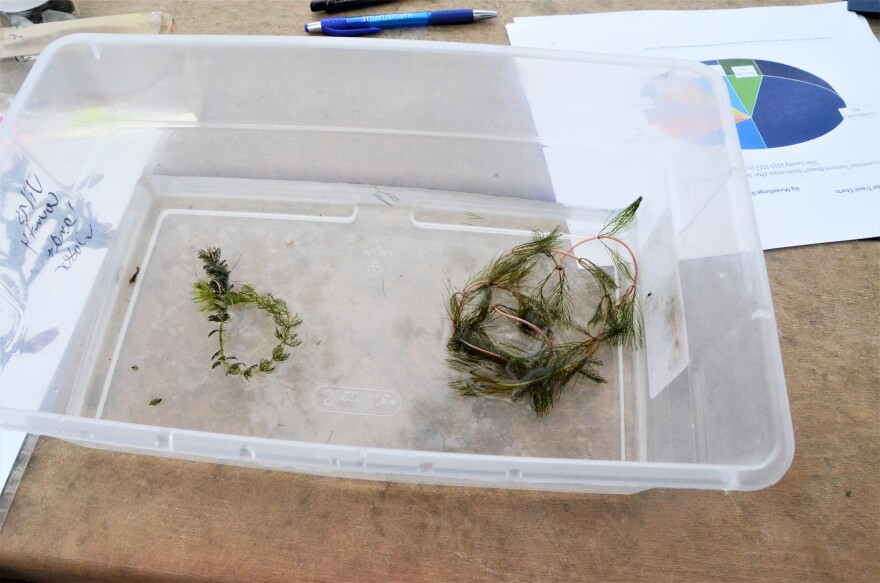Wisconsin law requires boaters to take certain steps to prevent the spread of aquatic invasive species.
This includes removing mud and any plants or animals attached to their boats or trailers, drain all water from boats, and to never move plants or live fish away from a waterbody.
There will be people at public boat launches across the state for the next two weeks to help and educate boaters about these laws. It’s part of the Clean Boats, Clean Waters annual Landing Blitz.
“Wisconsin’s watercraft inspection program is really special in so many different ways. There are a few other states that have watercraft inspection efforts, but ours is unique in that it was started as a grassroots program by middle school students back in the early 2000s and has grown to this larger community led effort,” said Erin McFarlane, the statewide Clean Boats, Clean Waters educator for UW Stevens Point Extension Lakes.
McFarlane says Oneida and Vilas Counties have the largest number of people that participate in the Clean Boat, Clean Waters program.
Vilas County Lake Conservation Specialist Kathy Higley expects there to be volunteers at more than 70 boat landings in the county over the next two weeks.
She helps train people with lake associations or other groups on how to be an inspector.
“I think Clean Boats, Clean Waters is really one of the best ways to promote aquatic invasive species prevention. You have a lot of people out boating on the Fourth of July that might not be frequent boaters, right?” said Higley. “Like it's vacation time, and we want those people to be visiting Vilas County and enjoying what we have up here, but it might not be something that's in the front of their mind.”
Aquatic invasive species can harm native species and reduce water quality.
While there has been some success removing or minimizing their impact, Higley says it’s a very expensive process.
“We definitely want to prevent just by way of keeping costs down for taxpayers,” said Higley.
There are a couple aquatic invasive species that are among the top priority in Vilas County. This includes plants like Eurasian Water Milfoil and Curley Leaf Pondweed that Higley says can be manageable.
“For example, I'm going to reference Boot Lake in Vilas County. Certainly, they have times where they feel that the Eurasian Water Milfoil might be a bit of a nuisance. They're able to get permits to manage it when they need it, but most of the time, it's really not all that bad,” said Higley.
She stresses that’s one of the benefits of the Clean Boats, Clean Waters program. That even they can’t keep invasives completely out of lakes, it can slow their spread to give them time to manage it.
“Preventing the spread of these things is best. It's a lot of money and effort and permitting, and potential for impacts when we have to start managing it, to keep our water bodies navigable or to mitigate some of those other impacts that we can kind of see and in those lakes where it does get to be truly too much,” said Higley.
Spiny water fleas have also been found in a couple lakes in Vilas County. There’s no good way to manage them once they’re in a lake.
Higley says they haven’t seen water clarity drop in those lakes like what was seen in Lake Mendota in Madison when it got spiny water fleas. She’s more concerned about the studies that have shown small fish struggling to pass the invasive species through their digestive tracts.
“There's actually been a study done in Minnesota that's shown that you have stunted certain species of game fish, including like walleye, in their first couple years when you have a system with spiny water fleas in it,” said Higley.
Clean Boat, Clean Waters participants will be at boat landings now through July 13 to educate boaters on state laws regarding AIS and to help check their boats and trailers to help prevent the spread.
“They're there just to help make sure people understand what steps should be taken as far as inspecting boats, removing anything attached, draining all the water, and then just to help explain why we have these steps,” said McFarlane. “They're not there to write tickets or to debate anything. They just want to be there to be helpful.”










